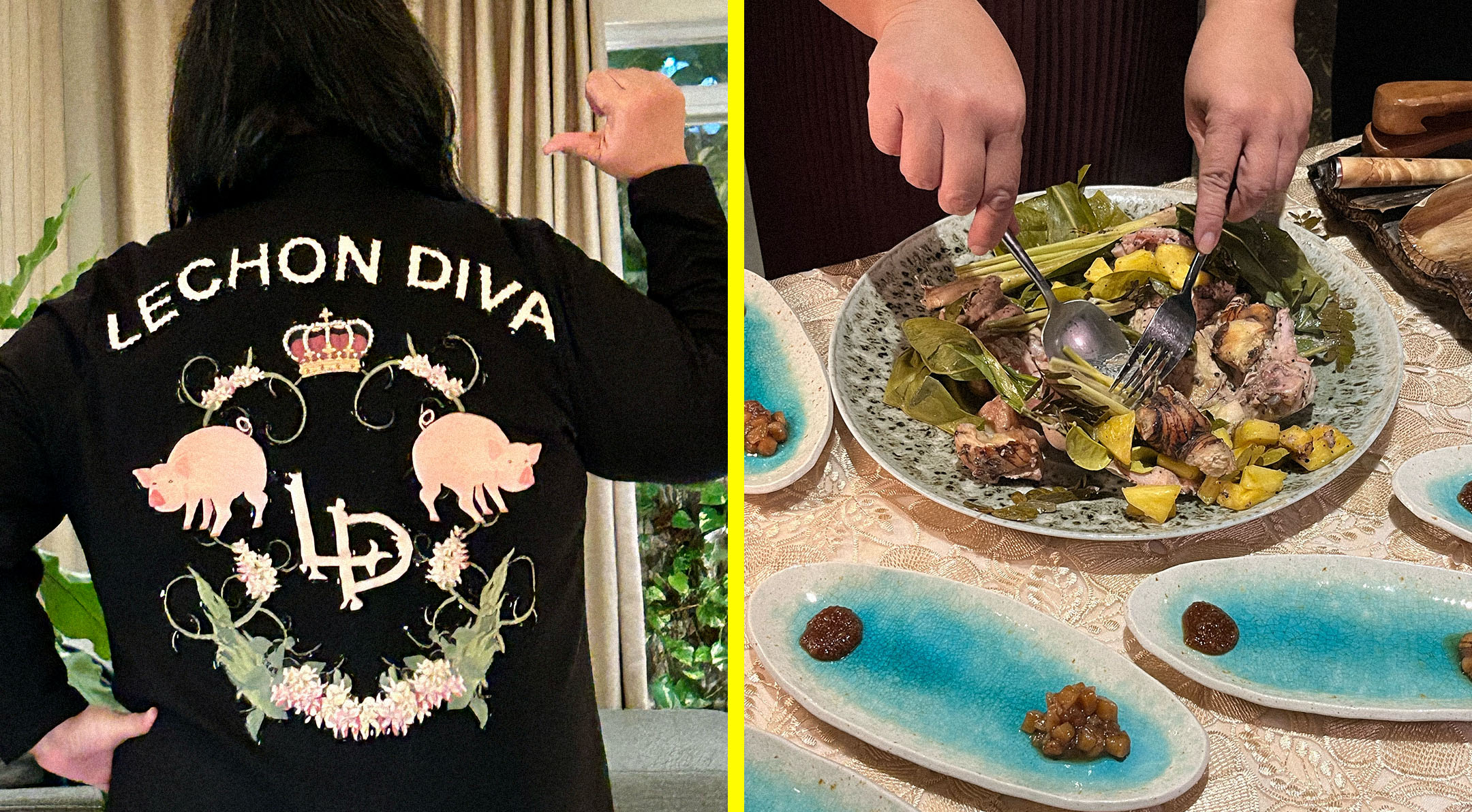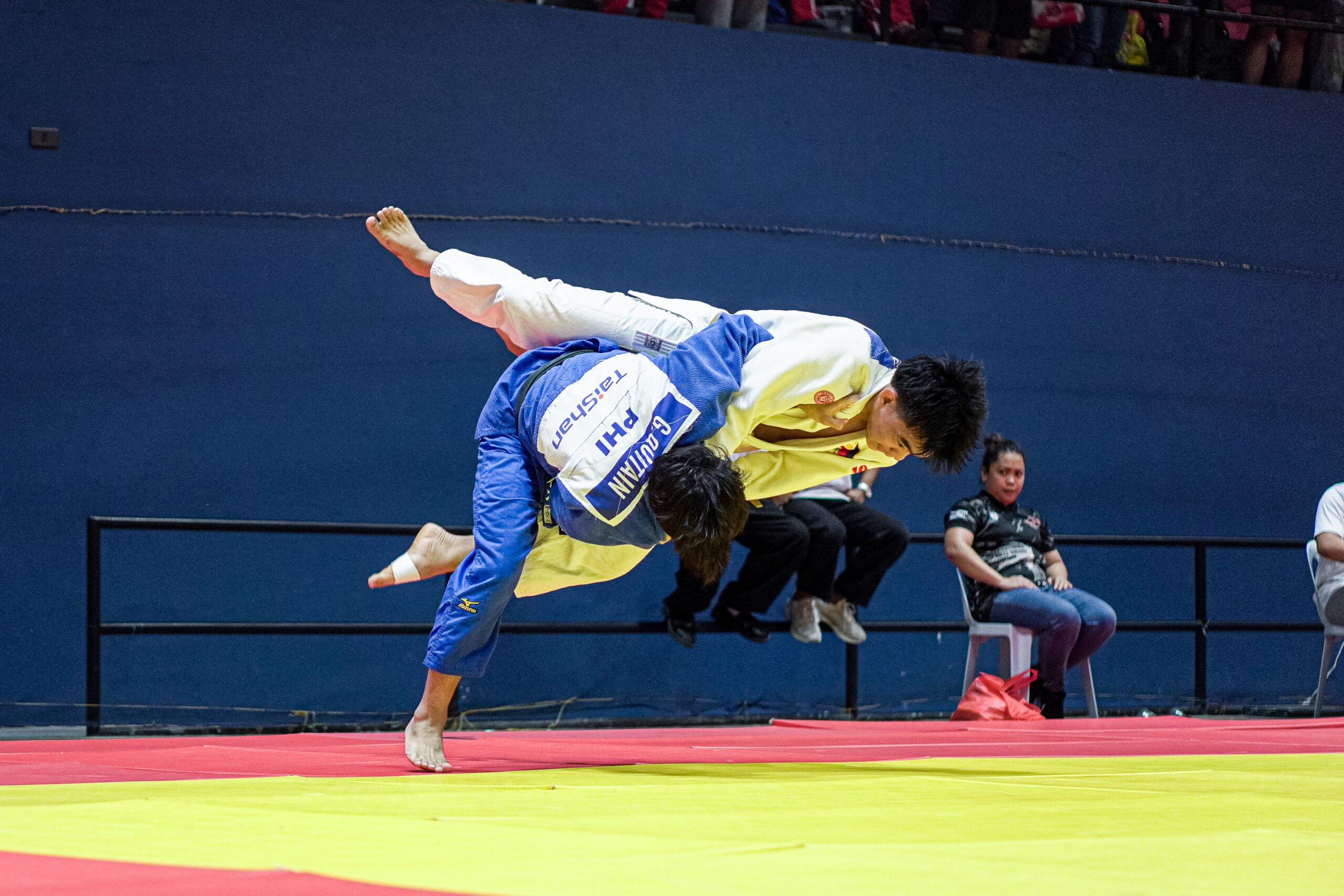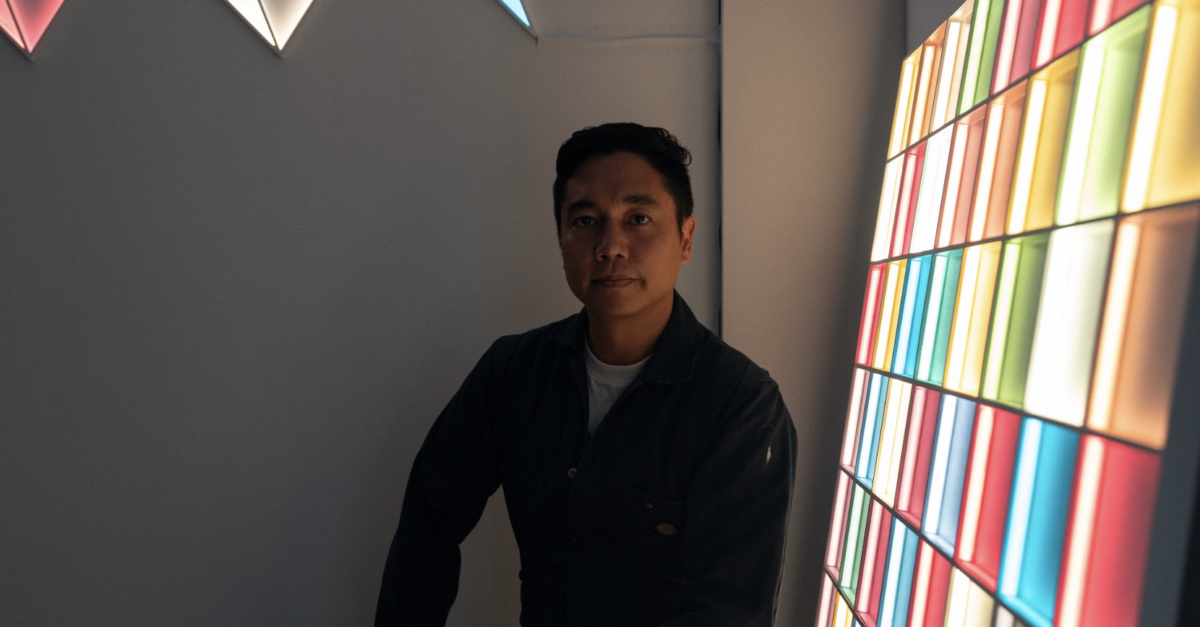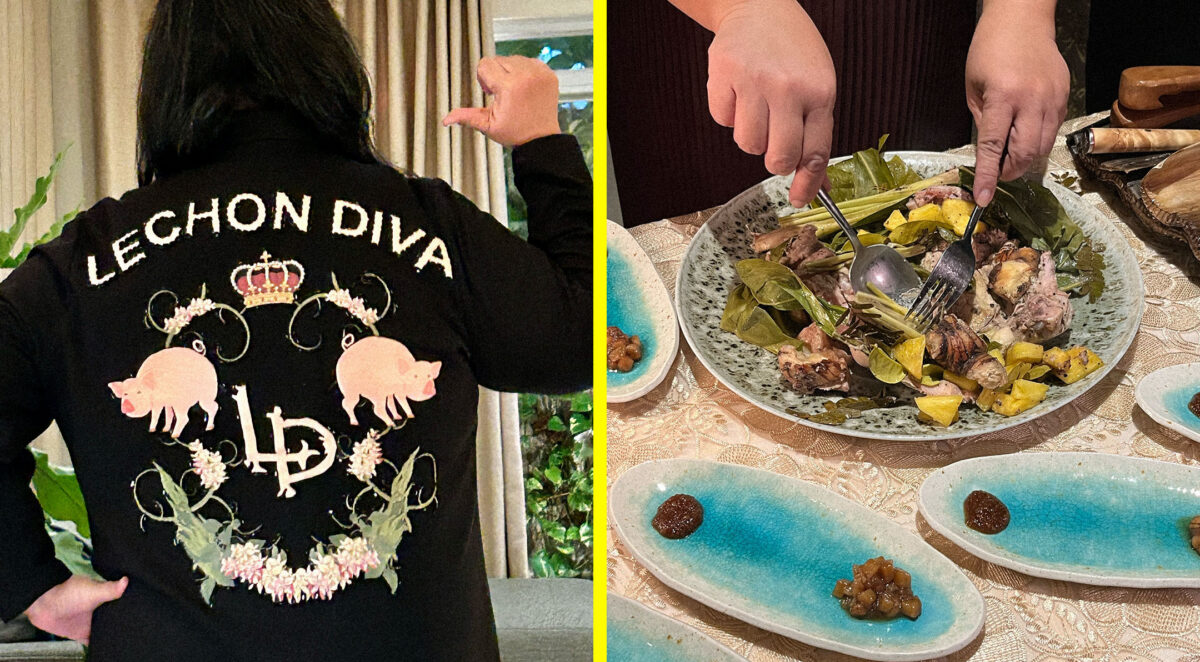
A fter two years of pandemic absence, the Carlos Palanca Sr. Memorial Awards for Literature came back online with a strong crop of winners—with several of them returning to the stage to claim victory, and many more who were young, their wins new as freshly minted coins, on Nov. 30, 2022.
This annual “family reunion” of the Philippines’ literary community took place at an untraditional venue—BGC instead of Makati City, at Marquis Place instead of at the Peninsula Manila—but the feeling was the same blend of warm camaraderie and comforting formality that has always given the Palancas its character and charm. The only other time in recent history that these awards were celebrated in a venue other than the ballroom of the Peninsula was in 1994, at the Dusit Thani Hotel, and, even then, the room packed with the country’s literati felt warm and welcoming, with a formality that provided courage rather than intimidation.

Speaking on behalf of the Palanca family, 1979 Bb. Pilipinas Universe Criselda Cecilio-Palanca quoted the speech delivered at the 1993 Palanca Awards by former President Fidel Ramos: “No government—except for the irreparably corrupt and the compulsively repressive—should fear its writers, for they, too, are a part of society; they are its rawest nerve, its clearest voice, its keenest minds. But it is both literature’s virtue and its responsibility to engage in reaffirming our fundamental humanity and the unity of our interests and aspirations as a people.”

Cecilio-Palanca quoted Ramos at the evening’s festivities, which opened just hours after the killing of National Book awardee, poet, songwriter and activist Ericson Acosta in Kabankalan City, Negros Occidental. Acosta had reportedly been captured alive, but was declared dead, his body bearing fatal stab wounds, at 2 a.m. on Nov. 30, Bonifacio Day.
While the celebratory air of the Palanca Awards was palpable and strong, the sense of celebration was tempered by Acosta’s demise—and it permeated the subtexts of public utterances and quiet lulls in conversation through the evening, onstage and off it. This January, one of the winners, playwright Bonifacio Ilagan, received a death threat via a phone call that authorities are now investigating.
Winners’ words

Filmmaker Khavn dela Cruz, who won the grand prize for the Nobela (Novel in Filipino) for his opus of an anti-novel titled “AntiMarcos,” spoke of Acosta onstage as he accepted his award, and raised his voice to cry out for justice for Acosta.
In a brief conversation with this writer, Dela Cruz said his win this year felt “surreal,” especially because of Acosta’s death earlier in the day. “Tuloy ang laban (the struggle continues),” he said. “We’re still alive.”
Writers write. Beyond that, writers write for an audience, reaching across space and time to bring their truths to an audience that may never even know them personally. In this sense, writing has always been a revolutionary act. The world as we know it now has been shaped, to a very large degree, by writers. The things that make strikingly good copy for a writer are the same things that make history, or remain food for thought for ages. Grist for the writer’s mill is the everyday and the unusual—and, in opportune moments, a combination of both presented well will win the author a prize.

Alfonso Tomas “Atom” Araullo is the second broadcast journalist to win first prize in the Essay at the Palanca Awards after Jay Taruc in 2019. Araullo said his winning piece, “Letter from Tawi-Tawi,” is the “text version of a documentary we made early in the year. When we were in Tawi-Tawi, I knew right away that I wanted to write something online, a text story … I really think that TV and text are so different in terms of what you can expect, how you can tell the stories of people that you meet. I was finishing my piece when I saw the Palanca Awards were open for submission again, and that you could do a purely online submission. It was easy so I might as well give it a shot. Honestly, I never imagined winning. For me, I just wanted to challenge myself. It was a personal challenge, and I’m very happy with how it turned out.”
He continued: “I was really inspired by the sights and the sounds of Tawi-Tawi. I wanted to share the experience of going there and meeting these people … While I was there, it seemed anachronistic to be on a boat where the scene was very familiar … I wanted to write this just to get it out of my system … At least, when I write it, it’s not just going to stay in my computer. I can actually share it with other people.”

Dumagueteño Ian Rosales Casocot, who teaches at Silliman University and has worked as the director of the Silliman University National Writers Workshop, bagged the first prize in the Short Story in English for “Ceferina in Apartment 2G.” Casocot had flown to Manila to receive his award and, in his words, “to see our literary family. There have been two years of pandemic lockdowns and restrictions after years of tokhang. Face-to-face interactions are so vital now. Finding that we are still capable of feeling joy, and celebration, that is good.”
Casocot has also, across several years, curated the Kill List Chronicles blog on the blogging site Medium that compiled poetry and prose protesting the Oplan: Tokhang killings under the Duterte administration.

Ramil Digal Gulle, who received the Palanca first prize for Poetry in English for his collection “Bol-anon Prodigal,” was in high spirits: “Kaya ko pa pala (I can still pull it off)!” He’d just replicated his 1996 first-prize win for the poetry collection “Twenty-Fifth Fly,” and his daughter Sophia was cheering him on—though Sophia did leave her dad for a few minutes to fangirl and take a selfie with Araullo.
Gulle had also won a poetry Palanca, a second-prize win, for “Afterhours, Afterlives” in 2000. “You sometimes think that you’re too old or too tired to win, then this happens. Then you realize that you just won again after a 22-year hiatus. Incredible.” Gulle is the head of content at the public relations firm Comm&Sense.
Power couples
This iteration of the Palancas also had a power couple or two, and wonder twins.

Awardee and Palawan-based barrio doctor Ralph Lorenz G. Fonte, whose collection “Ang Wika ng Dagat ay Layo (The Language of the Sea is Distance)” won him second prize in the Tula category escorted his girlfriend Charmaine M. Lasar, who won first prize in the the Maikling Kuwento for her story “Ang Value ng X Kapag Choppy si Mam (The Value of X When Ma’am is Choppy).” Also a Wattpad author, Lasar had won the Grand Prize for the Nobela in 2015, for her novel “Toto O,” which was published in 2016 by PageJump Media. But wait, there’s more. A scant three weeks later, Fonte received the 2022 Gawad Jacinto-Lira for Sining ng Pagtula.
Responding to quips about them having “his-and-hers” awards, Fonte smiled widely and commented “I have good taste in a girlfriend.” Lasar, meanwhile, took Fonte’s hand in hers and issued a smiling rejoinder: “Dapat lang (as you should).”
And here we thought that Fonte’s 2019 Palanca win, just after passing the medical board exams, was a mamaw (boss-monster) move that could not be exceeded. We were quite happy to be proven wrong.
Elyrah L. Salanga-Torralba was a double-winner that night, having won first prize for Poetry for Children in English and second prize in the Short Story for Children in English. She was escorted by her husband, Miriam College faculty member John Torralba—who had won quite a few Palancas of his own in the past years. He said, “Kung kilig ako sa mga panalo ko, mas kilig ako sa panalo ng misis ko. Mas matamis, eh (If I was thrilled by my wins, my wife’s win is even more thrilling. It is sweeter).”
“The winners get younger every year,” Gulle noted as he cast a look about the ballroom. “It makes me feel old in a good way.”

He made a compelling point: The youngest winners in this cycle of the Palancas were 12-year-old twins who won in the Filipino and English categories, respectively, of the Kabataan Essay: Glorious Zavannah Exylin C. Alesna (“Pamimintana” or “At the Window”) and Glorious Zahara Exylin C. Alesna (“Home is a Bowl of Warm Soup”). There was a time when poet Eric Gamalinda was recorded as the youngest Palanca winner at 18, many, many moons ago. When this writer judged in the Palancas in 2001, seeing a 17-year-old winner was cause to cheer.
Age is not a bad thing, either, as Cecilio-Palanca did say in her address to the winners, judges and audience, that “the oldest winner was a 78-year-old female writer.” Proof enough that you can be a writer at practically any age—provided you can read, think, write, and have the determination to do all those things and build your skills consistently. In the end, writing isn’t about getting your lines right the first time you put hands to keyboard. Writing is about persistence in polishing your words until they say precisely what you intend to say—no more, and no less.
Call to action
University of the Philippines Film Institute professor emeritus Nicanor Tiongson delivered the keynote address at the awards, and he made a strong case for writing as the preservation of memory, and as the best tool for critical thinking.
Speaking in Filipino, Tiongson behooved all those present to “deliberately investigate and discuss the actual events or issues that are distorted or hidden, beautified or corrupted by the minions of darkness.” He also exhorted writers to use “any and all” available languages “so we can reach the widest number and most layers of society, to ensure they will understand what they read or watch of our works.”

“Let us give new life to the traditional forms of our literature that are familiar, which entertain the ordinary Filipino,” Tiongson said, adding that “[we must] discover and further enrich the emerging new forms of [our] literature that the youth and internet communities enjoy now… Brothers and sisters in the literary arts, this is not the time for silence, or evasion, or indifference. Have the enemies of our country not taken advantage of our silence after the Edsa People Power Revolution to sow despair among our compatriots so they could return to power?”
Taking in Tiongson’s speech over dessert, Palanca Awards director general Sylvia Palanca-Quirino turned to this writer with a smile: “Nick is talking about education, and not just in the classroom. He refers to education given at every opportunity. That is something we at the Palanca Foundation have worked to support over the last 70 Palanca Awards.”
The 70th Palanca Awards program eschewed the traditional staging of the one-act play grand prize winner—and that meant more time for the writers in the room to mingle, socialize, and reconnect after two years of limited access to one another. That said, we missed our thespian colleagues and hope to see them again soon, in another Palanca Awards night.
While this Palanca ballroom was a more intimate space than usual, the awards night still bore its trademark mix of gravitas and excitement—this family reunion was a resounding success, especially at melding the traditional with the new, and activism with celebration.

Beyond statistics
Cecilio-Palanca noted that “70 is a significant number. It denotes completion, wholeness, the end of a season and the beginning of the new.” The Palanca family’s aspiration as of the 70th cycle of the awards, as she noted, is that the “community of exemplary writers, continue to provide lessons and vigorous examples of nation-building—indeed, of world-building.”
As the Good Book states, in the beginning was the Word—and we don’t mean the software. From the time humans invented writing systems, humans have been writing to chronicle the world as it goes through its cycles of evolution and devolution. Human language has, over millennia, recorded the human experience and the human soul. What the Palanca Awards at 70 cycles has done for Philippine letters is to provide an arena where our writers compete by writing their best work. The Palanca Foundation has also collated those winning works into a library that is open to the public, effectively creating an invaluable repository of excellent literature crafted by Filipino writers.
According to Cecilio-Palanca, this latest cycle, the Palanca Awards saw 1,455 submissions for 22 categories. There were 28 new winners, and 31 former winners returning to glory. Six of the winners were 20 years old and younger; nine were 21 to 30 years old; 20 of the winners were aged 31 to 40 years; 13 were aged 41 to 50 years; six were 51 to 60 years, and; were 61 years of age and older.
Across 70 years of the Palanca Awards, she said, “there have now been 2,472 authors (from 1951 to 2022), with the total number of winning works now standing at 2,561. The total number of Hall of Famers, as of 2022, stands at 26. But we all know that these awards go far beyond statistics. Countless lives and destinies have been shaped by the thoughts and wise words of our poets, storytellers and essayists—timeless voices that were shared and amplified through the Palanca awards all these years.”
In its 70th cycle, the Carlos Palanca Sr. Memorial Awards for Literature continues to push envelopes, and gather writers under its banner who are not strangers to pushing the envelope of arts, culture and national identity.
As the Philippines wends her way through new challenges and treacherous paths, her writers are present, honing their pens in competitions like the Palanca Awards for the work cut out and put before them: Chronicling the truths in a country mired in lies and misinformation. Finding joy in the unlikeliest of places and situations. Educating while entertaining readers using every means they have. Reaching for the stars that we can barely see in the dark nights and brightest days. This stellar gathering of Philippine letters’ best and brightest brings the shelter of a lamp about that ember of hope that Cecilio-Palanca said the Palanca Awards strives to keep alive—for this generation, and those that come after it. For a complete list of winners, go to page D1 on Inquirer Plus.









































